|
Books Should Be Free Loyal Books Free Public Domain Audiobooks & eBook Downloads |
|
|
Books Should Be Free Loyal Books Free Public Domain Audiobooks & eBook Downloads |
|
Classics and Books from Antiquity |
|---|
|
Book type:
Sort by:
View by:
|
By: Charles Dickens | |
|---|---|
 Great Expectations
Great Expectations
From the opening passage itself of Great Expectations by Charles Dickens, the reader is drawn into the world of the hero, Pip, who is at that time, seven years old. The author creates an unforgettable atmosphere: the gloom of the graveyard, the melancholy of the orphan boy, the mists rising over the marshes and the terrifying appearance of an escaped convict in chains. Told in first person (one of the only two books that Dickens used this form for, the other being David Copperfield) Great Expectations is a classic coming of age novel, in which we trace the growth and evolution of Pip or Philip Pirrip to give his full name... | |
By: Homer | |
|---|---|
 The Odyssey
The Odyssey
A wandering king who's a war-hero doomed to roam the earth by a vengeful God, a plethora of fantastic experiences, a wife battling the invasion of suitors who wish to replace her missing husband, a son in search of his father - the Odyssey is a rich tapestry of incredible experiences and unforgettable characters. A must-read classic for anyone who wants to understand the fundamentals of Western mythology, it is a sequel to the Illiad which recounts the magnificent saga of the Trojan War. The Odyssey continues on, describing the trials and tribulations of the Greeks under the leadership of Odysseus... | |
 The Iliad
The Iliad
A divinely beautiful woman who becomes the cause of a terrible war in which the gods themselves take sides. Valor and villainy, sacrifices and betrayals, triumphs and tragedies play their part in this three thousand year old saga. The Iliad throws us right into the thick of battle. It opens when the Trojan War has already been raging for nine long years. An uneasy truce has been declared between the Trojans and the Greeks (Achaeans as they're called in The Iliad.) In the Greek camp, Agamemnon the King of Mycenae and Achilles the proud and valiant warrior of Phthia are locked in a fierce contest to claim the spoils of war... | |
By: Mary Wollstonecraft Shelley (1797-1851) | |
|---|---|
 Proserpine and Midas
Proserpine and Midas
| |
By: Anthony Trollope (1815-1882) | |
|---|---|
 Doctor Wortle's School
Doctor Wortle's School
Anthony Trollope’s fortieth novel, published in 1881, concerns a respectable Christian boys’ school whose proprietor unknowingly hires a woman who apparently has two husbands: A devoted English scholar and an abusive drunkard from the American south. The book interweaves a sensitive and realistic exploration of Dr. Wortle’s moral dilemma with a humorous look at small-town gossip and--of course--a romance involving the doctor’s beautiful young daughter. ( | |
By: Walt Whitman (1819-1892) | |
|---|---|
 Leaves of Grass
Leaves of Grass
Nearly 160 years after it was first published, Walt Whitman's Leaves of Grass continues to inspire, enthrall and educate generations of readers. This collection of poems serves as a vehicle for Whitman's philosophy, ideals, love of nature and mystical musings and it subsequently became one of the corner stones of American literature. Whitman was inspired to write Leaves of Grass based on Ralph Waldo Emerson's clarion call for a truly American poet who would tell of its glories, virtues and vices... | |
By: Nathaniel Hawthorne (1804-1864) | |
|---|---|
 Tanglewood Tales
Tanglewood Tales
A sequel to Nathaniel Hawthorne's earlier volume of Greek mythology interpreted and retold for young people, Tanglewood Tales includes more legends and tales of ancient heroes and monsters. In his earlier book, A Wonder-Book for Girls and Boys, Hawthorne had designed the book to be a book within a book. A young college student keeps a group of young children entertained by retelling Greek myths in a way in which they can easily understand. Nathaniel Hawthorne also wrote a brief introduction to Tanglewood Tales, entitled The Wayside... | |
By: Plato (427-347) | |
|---|---|
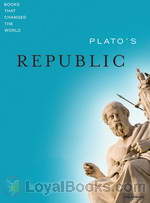 Plato's Republic
Plato's Republic
Plato's Republic is a Socratic dialogue which deals mainly with the definition of justice, the characteristics of a just city state and the just man. Although it was written more than two thousand years ago, many of the ideas and thoughts expounded here are still very much relevant to modern society. This is Plato's best known work and is also considered his most influential especially when it comes to the fields of philosophy and political theory. The Republic is divided into ten books and in each book Socrates discusses different topics from the immortality of the soul to the meaning of justice with his disciples like Glaucon, Thrasymachus, Adeimantus and others... | |
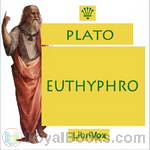 Euthyphro
Euthyphro
Awaiting his trial on charges of impiety and heresy, Socrates encounters Euthyphro, a self-proclaimed authority on matters of piety and the will of the gods. Socrates, desiring instruction in these matters, converses with Euthyphro, but as usual, the man who professes to know nothing fares better than the man who claims to be an expert. One of Plato’s well-known Socratic Dialogues, Euthyphro probes the nature of piety, and notably poses the so-called Euthyphro Dilemma: Do the gods love a thing because it is holy, or is a thing holy because it is loved by the gods? | |
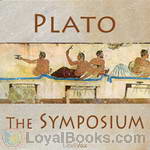 The Symposium
The Symposium
The Symposium (Ancient Greek: Συμπόσιον) is a philosophical book written by Plato sometime after 385 BCE. On one level the book deals with the genealogy, nature and purpose of love, on another level the book deals with the topic of knowledge, specifically how does one know what one knows. The topic of love is taken up in the form of a group of speeches, given by a group of men at a symposium or a wine drinking party at the house of the tragedian Agathon at Athens. Plato constructed the Symposium as a story within a story within a story... | |
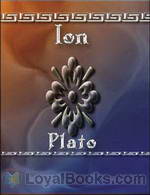 Ion
Ion
In Plato’s Ion, Socrates questions Ion on whether he should really claim laud and glory for his ‘rhapsodic’ recitals of Homer’s poetry. | |
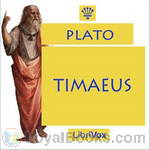 Timaeus
Timaeus
“Our intention is, that Timaeus, who is the most of an astronomer amongst us, and has made the nature of the universe his special study, should speak first, beginning with the generation of the world and going down to the creation of man…” ‘Timaeus’ is usually regarded as one of Plato’s later dialogues, and provides an account of the creation of the universe, with physical, metaphysical and ethical dimensions, which had great influence over philosophers for centuries following. It attributes the order and beauty of the universe to a benevolent demiurge – a ‘craftsman’ or god – fashioning the physical world after the pattern of an ideal, eternal one... | |
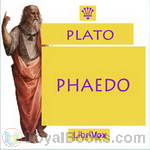 Phaedo
Phaedo
Plato's Phaedo is one of the great dialogues of his middle period, along with the Republic and the Symposium. The Phaedo, which depicts the death of Socrates, is also Plato's seventh and last dialogue to detail the philosopher's final days (the first six being Theaetetus, Euthyphro, Sophist, Statesman, Apology, and Crito).In the dialogue, Socrates discusses the nature of the afterlife on his last day before being executed by drinking hemlock. Socrates has been imprisoned and sentenced to death by an Athenian jury for not believing in the gods of the state and for corrupting the youth of the city... | |
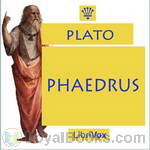 Phaedrus
Phaedrus
“For there is no light of justice or temperance, or any of the higher ideas which are precious to souls, in the earthly copies of them: they are seen through a glass, dimly…”Socrates and his earnest friend Phaedrus, enjoying the Athenian equivalent of a lunchtime stroll in the park, exchange views on love and on the power of words, spoken and written.Phaedrus is the most enchanting of Plato’s Erotic dialogues (capitalised in honour of the god). The barefoot philosopher urges an eager young... | |
By: Publius Cornelius Tacitus | |
|---|---|
 A Dialogue Concerning Oratory, or the Causes of Corrupt Eloquence
A Dialogue Concerning Oratory, or the Causes of Corrupt Eloquence
The scene of the Dialogus de Oratoribus, as this work is commonly known, is laid in the sixth year of Vespasian, 75 a.D. The commentators are much divided in their opinions about the real author; his work they all agree is a masterpiece in the kind; written with taste and judgement; entertaining, profound, and elegant. It is normally considered to have been written by Tacitus, even though some ascribe it to Quintilian. The main subject is the decadence of oratory, for which the cause is said to be the decline of the education, both in the family and in the school, of the future orator. In a certain way, it can be considered a miniature art of rhetoric. | |
By: E.M. Berens | |
|---|---|
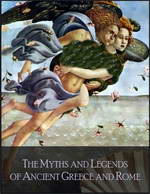 Myths and Legends of Ancient Greece and Rome
Myths and Legends of Ancient Greece and Rome
Silver footed, fair haired Thetis, Ares the God of War, Nike the Goddess of Victory, The Furies and The Muses, Zeus the presiding deity of the Universe and the magical, mysterious Olympus, are some of the amazing, mythical Greek and Roman deities you'll encounter in this book. Myths and Legends of Ancient Greece and Rome by EM Berens was originally intended for young readers. Written in an easy and light style, the author attempts to bring the pantheon of gods into a comprehensible format.... | |
By: Flavius Josephus (37 - c.100) | |
|---|---|
 The Antiquities of the Jews
The Antiquities of the Jews
Antiquities of the Jews was a work published by the important Jewish historian Flavius Josephus about the year 93 or 94. It is a history of the Jewish people, written in Greek for Josephus' gentile patrons. Beginning with the creation of Adam and Eve, it follows the events of the historical books of the Hebrew Bible, but sometimes omits or adds information.Volume 1 contains Books 1-5 and ends with the dedication of Samuel and death of Eli the priest. | |
 Minor Works of Josephus
Minor Works of Josephus
There are 3 parts to this collection.(1) Against Apion is a two-volume defense of Judaism as classical religion and philosophy, stressing its antiquity, as opposed to what Josephus claimed was the relatively more recent tradition of the Greeks. Some anti-Judean allegations ascribed by Josephus to the Greek writer Apion, and myths accredited to Manetho are also addressed.(2) Discourse To The Greeks Concerning Hades describes the author's views on the afterlife against the prevailing view of the "Greeks" (i... | |
By: John Kendrick Bangs (1862-1922) | |
|---|---|
 Olympian Nights
Olympian Nights
| |
By: Publius Vergilius Maro (70 BC - 19 AD) | |
|---|---|
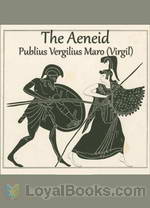 The Aeneid
The Aeneid
The Aeneid is a Latin epic written by Virgil in the 1st century BC that tells the legendary story of Aeneas, a Trojan who traveled to Italy, where he became the ancestor of the Romans. The first six of the poem’s twelve books tell the story of Aeneas’ wanderings from Troy to Italy, and the poem’s second half treats the Trojans’ ultimately victorious war upon the Latins, under whose name Aeneas and his Trojan followers are destined to be subsumed. The poem was commissioned from Vergil by the Emperor Augustus to glorify Rome... | |
 The Eclogues
The Eclogues
This book of poems, written between 42 en 39 BC, was a bestseller in ancient Rome, and still holds a fascination today. Held to be divinely inspired not only by the Romans themselves, but by the Medieval Catholic church, The Eclogues is one of the most beloved collections of Latin short poetry. | |
By: Thomas Bulfinch (1796-1867) | |
|---|---|
 Bulfinch's Mythology: the Age of Fable
Bulfinch's Mythology: the Age of Fable
| |
By: Alexander Pope (1688-1744) | |
|---|---|
 An Essay on Man
An Essay on Man
Pope’s Essay on Man, a masterpiece of concise summary in itself, can fairly be summed up as an optimistic enquiry into mankind’s place in the vast Chain of Being. Each of the poem’s four Epistles takes a different perspective, presenting Man in relation to the universe, as individual, in society and, finally, tracing his prospects for achieving the goal of happiness. In choosing stately rhyming couplets to explore his theme, Pope sometimes becomes obscure through compressing his language overmuch... | |
By: William Morris (1834-1896) | |
|---|---|
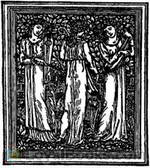 The Earthly Paradise
The Earthly Paradise
| |
By: Friedrich Wilhelm Nietzsche (1844-1900) | |
|---|---|
 Homer and Classical Philology
Homer and Classical Philology
| |
 We Philologists Complete Works of Friedrich Nietzsche, Volume 8
We Philologists Complete Works of Friedrich Nietzsche, Volume 8
| |
By: Samuel Butler (1774-1839) | |
|---|---|
 The Atlas of Ancient and Classical Geography
The Atlas of Ancient and Classical Geography
| |
By: Sophocles (495-406 BC) | |
|---|---|
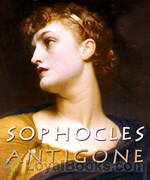 Antigone
Antigone
This is the final installment in Sophocles's Theban Plays, following Oedipus Rex and Oedipus at Colonus. Oedipus's daughter Antigone deliberately breaks the laws of Thebes when she buries her brother's body and is sentenced to death. She clashes with Creon, the King of Thebes, over what constitutes justice and morality: the laws of the state or the laws of the individual. | |
 Electra
Electra
Sophocles' play dramatizes the aftermath of Agamemnon's murder by his wife Clytemnestra and her lover Aegisthus. His daughter Electra is hungry for revenge and longs for the return of her brother Orestes to help her achieve her ends. | |
By: Marcus Tullius Cicero | |
|---|---|
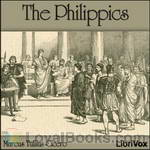 The Philippics
The Philippics
A philippic is a fiery, damning speech delivered to condemn a particular political actor. The term originates with Demosthenes, who delivered an attack on Philip II of Macedon in the 4th century BCE.Cicero consciously modeled his own attacks on Mark Antony, in 44 BC and 43 BC, on Demosthenes’s speeches, and if the correspondence between M. Brutus and Cicero are genuine [ad Brut. ii 3.4, ii 4.2], at least the fifth and seventh speeches were referred to as the Philippics in Cicero’s time. They were also called the Antonian Orations by Aulus Gellius... | |
By: Marcus Vitruvius Pollio (75 BC - c. 15 BC) | |
|---|---|
 Ten Books on Architecture
Ten Books on Architecture
On Architecture is a treatise on architecture written by the Roman architect Vitruvius and dedicated to his patron, the emperor Caesar Augustus as a guide for building projects. The work is one of the most important sources of modern knowledge of Roman building methods as well as the planning and design of structures, both large (aqueducts, buildings, baths, harbours) and small (machines, measuring devices, instruments). He is also the prime source of the famous story of Archimedes and his bath-time discovery. | |
By: Phaedrus (c. 15 BC - c. AD 50) | |
|---|---|
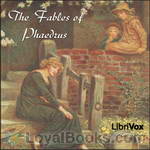 The Fables of Phaedrus
The Fables of Phaedrus
The fable is a small narrative, in prose or verse, which has as its main characteristic the aim of conveying a moral lesson (the “moral”), implicitly or, more normally, explicitly expressed. Even though the modern concept of fable is that it should have animals or inanimated objects as characters – an idea supported by the works of famous fabulists such as Aesop and La Fontaine – Phaedrus, the most important Latin fabulist, is innovative in his writing. Although many of his fables do depict animals or objects assuming speech, he also has many short stories about men, writing narratives that seem to the modern eye more like short tales than fables... | |
By: Xenophon | |
|---|---|
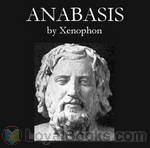 Xenophon's Anabasis
Xenophon's Anabasis
Xenophon the Athenian was born 431 B.C. He was a pupil of Socrates. He marched with the Spartans, and was exiled from Athens. Sparta gave him land and property in Scillus, where he lived for many years before having to move once more, to settle in Corinth. He died in 354 B.C. “Anabasis” is a Greek work which meane “journey from the coast to the center of a country.” This is Xenophon’s account of his march to Persia with a troop of Greek mercenaries to aid Cyrus, who enlisted Greek help to try and take the throne from his brother Artaxerxes, and the ensuing return of the Greeks, in which Xenophon played a leading role... | |
By: Padraic Colum (1881-1972) | |
|---|---|
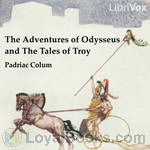 The Adventures of Odysseus and the Tale of Troy
The Adventures of Odysseus and the Tale of Troy
Also known as “The Children’s Homer,” this is Irish writer Padraic Colum’s retelling of the events of Homer’s Iliad and Odyssey for young people. Colum’s rich, evocative prose narrates the travails of Odysseus, King of Ithaca: his experiences fighting the Trojan War, and his ten years’ journey home to his faithful wife Penelope and his son Telemachus. | |
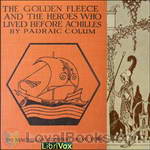 The Golden Fleece and the Heroes Who Lived Before Achilles
The Golden Fleece and the Heroes Who Lived Before Achilles
This is Irish folklorist Padraic Colum's masterful retelling of many Greek myths, focusing on Jason and the Argonauts' quest to find the Golden Fleece. He also includes the stories of Atalanta, Heracles, Perseus, Theseus, and others. | |
By: Titus Lucretius Carus (94? BC - 49? BC) | |
|---|---|
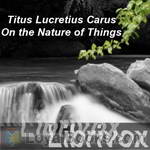 On the Nature of Things
On the Nature of Things
Written in the first century b.C., On the Nature of Things (in Latin, "De Rerum Natura") is a poem in six books that aims at explaining the Epicurean philosophy to the Roman audience. Among digressions about the importance of philosophy in men's life and praises of Epicurus, Lucretius created a solid treatise on the atomic theory, the falseness of religion and many kinds of natural phenomena. With no harm to his philosophical scope, the author composed a didactic poem of epic flavor, of which the imagery and style are highly praised. | |
By: Euripides (480-406 BC) | |
|---|---|
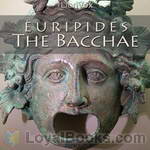 The Bacchae
The Bacchae
This tragedy is based on the mythological story of King Pentheus of Thebes and his mother Agave, and their punishment by the god Dionysus (who is Pentheus' cousin) for refusing to worship him. | |
By: Valmiki | |
|---|---|
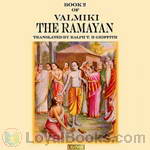 The Ramayana Book 2
The Ramayana Book 2
The Ramayana is an ancient Sanskrit epic. It is attributed to the Hindu sage Valmiki and forms an important part of the Hindu canon (smṛti). The Ramayana is one of the two great epics of India, the other being Mahabharata. It is the story of Rama, who emabrks on an epic journey followed by the fight with Ravana, the demon king who abducted Rama's wife, Sita. The epic depicts the duties of relationships, portraying ideal characters like the ideal servant, the ideal brother, the ideal wife and the ideal king. (Introduction by Om123) | |
By: Aristophanes (446BC - 385BC) | |
|---|---|
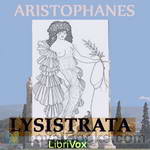 Lysistrata
Lysistrata
Lysistrata read by the Classics Drama Company at DePaul. The Classics Drama Company at DePaul is a new gathering of Thespians and Classicists dedicated to performing and understanding ancient literature. If you live in Chicago and attend DePaul University, we welcome new additions to our group. Contact Dr. Kirk Shellko (kshellko@depaul.edu), if interested.First performed in classical Athens c. 411 B.C.E., Aristophanes’ Lysistrata is the original battle of the sexes. One woman, Lysistrata, brings together the women of all Greece, exhorting them to withhold sexual contact from all men in order that they negotiate a treaty... | |
By: Lucius Apuleius (125?-180) | |
|---|---|
 The Golden Asse
The Golden Asse
| |
By: Oliver Herford (1863-1935) | |
|---|---|
 The Mythological Zoo
The Mythological Zoo
| |
By: Hesiod | |
|---|---|
 Works and Days, The Theogony, and The Shield of Heracles
Works and Days, The Theogony, and The Shield of Heracles
Works and Days provides advice on agrarian matters and personal conduct. The Theogony explains the ancestry of the gods. The Shield of Heracles is the adventure of Heracles accepting an enemy's challenge to fight. | |
By: Pliny the Younger (61 - ca. 112) | |
|---|---|
 Letters of Pliny
Letters of Pliny
The largest surviving body of Pliny's work is his Epistulae (Letters), a series of personal missives directed to his friends, associates and the Emperor Trajan. These letters are a unique testimony of Roman administrative history and everyday life in the 1st century CE. Especially noteworthy among the letters are two in which he describes the eruption of Mount Vesuvius in August 79, during which his uncle Pliny the Elder died (65 and 66 in this edition), and one in which he asks the Emperor for instructions regarding official policy concerning Christians (Trajan Letter 97)... | |
By: T. L. (Thomas Louis) Haines (1844-) | |
|---|---|
 Museum of Antiquity A Description of Ancient Life
Museum of Antiquity A Description of Ancient Life
| |
By: Apollonius Rhodius (3rd Cent. -3rd Cent.) | |
|---|---|
 Argonautica
Argonautica
The story of how Jason and a group of famous heroes of Greece took to sea in the Argos has been told many times, before and after Apollonius of Rhodes, wrote his Argonautica, in the 3rd century b.C.. It is not only the oldest full version of the tale to arrive to our days, but also the only extant example of Hellenistic epic. This was already a popular myth by the times of Apollonius, who makes the story of how Jason and the Argonauts sail to Colchis in search of the Golden Fleece, and have to go through a lot of adventures to fulfill their task, a mix of simple narrative and scholarly catalog. The Argonautica had a deep impact on European literature as a whole. | |
By: Ernest Arthur Gardner (1862-1939) | |
|---|---|
 Religion and Art in Ancient Greece
Religion and Art in Ancient Greece
| |
By: Charles K. (Charles Knapp) Dillaway (1804-1889) | |
|---|---|
 Roman Antiquities, and Ancient Mythology For Classical Schools (2nd ed)
Roman Antiquities, and Ancient Mythology For Classical Schools (2nd ed)
| |
By: Thomas Hodgkin (1831-1913) | |
|---|---|
 Theodoric the Goth
Theodoric the Goth
Theodoric the Great (~454-526) was king of the Ostrogoths during the time of the terminal decline of the Western Roman Empire. After wandering with his people through the Balkans, at times allied with the Eastern Empire, and at others, its enemy, he was invited by the Emperor Zeno to invade and conquer Italy on behalf of the Empire. He defeated the Germanic king Odovacar, who had himself deposed the last Emperor of the West, and established the Ostrogothic Kingdom in Italy. He became known as "King of the Goths and Romans in Italy", ruling according to the principle of civilitas. His reign was a time of stability and prosperity. ( Patrick Eaton) | |
By: Charles Stuart Calverley (1831-1884) | |
|---|---|
 Verses and Translations
Verses and Translations
| |
By: John Ogilvie (1732-1813) | |
|---|---|
 An Essay on the Lyric Poetry of the Ancients
An Essay on the Lyric Poetry of the Ancients
| |
By: Unknown | |
|---|---|
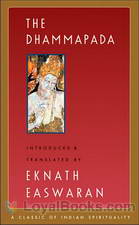 The Dhammapada
The Dhammapada
The Dhammapada is is a Buddhist scripture, containing 423 verses in 26 categories. According to tradition, these are verses spoken by the Buddha on various occasions, most of which deal with ethics. It is is considered one of the most important pieces of Theravada literature. Despite this, the Dhammapada is read by many Mahayana Buddhists and remains a very popular text across all schools of Buddhism. – Excerpted from Wikipedia | |
By: Plato (424/423 BC - 348/347 BC) | |
|---|---|
 Apology
Apology
The Apology of Socrates is Plato's version of the speech given by Socrates as he unsuccessfully defended himself in 399 BC against the charges of "corrupting the young, and by not believing in the gods in whom the city believes, but in other daimonia that are novel" (24b). "Apology" here has its earlier meaning (now usually expressed by the word "apologia") of speaking in defense of a cause or of one's beliefs or actions (from the Ancient Greek ἀπολογία). | |
By: Gaius Petronius Arbiter | |
|---|---|
 The Satyricon
The Satyricon
Satyricon (or Satyrica) is a Latin work of fiction in a mixture of prose and poetry. It is believed to have been written by Gaius Petronius, though the manuscript tradition identifies the author as a certain Titus Petronius. As with the Metamorphoses of Apuleius, classical scholars often describe it as a "Roman novel", without necessarily implying continuity with the modern literary form.The surviving portions of the text detail the misadventures of the narrator, Encolpius, and his lover, a handsome sixteen-year-old boy named Giton... | |
By: Plato (426-347 BCE) | |
|---|---|
 Meno
Meno
Meno (Ancient Greek: Μένων) is a Socratic dialogue written by Plato. Written in the Socratic dialectic style, it attempts to determine the definition of virtue, or arete, meaning in this case virtue in general, rather than particular virtues, such as justice or temperance. The goal is a common definition that applies equally to all particular virtues. Socrates moves the discussion past the philosophical confusion, or aporia, created by Meno's paradox (aka the learner's paradox) with the introduction of new Platonic ideas: the theory of knowledge as recollection, anamnesis, and in the final lines a movement towards Platonic idealism.. (Introduction by Wikipedia) | |
By: Unknown (43 BC - 18?) | |
|---|---|
 The Metamorphoses of Ovid Vol. I, Books I-VII
The Metamorphoses of Ovid Vol. I, Books I-VII
| |
 Plutarch: Lives of the noble Grecians and Romans
Plutarch: Lives of the noble Grecians and Romans
| |
By: Plato (424-348 BC) | |
|---|---|
 Laws
Laws
Νόμοι (Laws) is Plato's final dialogue written after his attempt to advise the tyrant Dionysius II of Syracuse. The dialogue takes place between: an Athenian Stranger (Socrates? A god in human form?); the quiet Lacedaemonian Megillus; and the Cretan Cleinias. The Stranger asks whether humans live to be more effective at waging war or if there is something more important a legislator should seek to achieve. During their pilgrimage Cleinias discloses his role in the establishment of a new colony... | |
By: Plato (Πλάτων) (c. 428 BC - c. 347 BC) | |
|---|---|
 Republic (version 2)
Republic (version 2)
The Republic is a Socratic dialogue written by Plato around 380 BC concerning the definition of justice and the order and character of the just city-state and the just man. It is Plato's best-known work and has proven to be one of the most intellectually and historically influential works of philosophy and political theory. In it, Socrates along with various Athenians and foreigners discuss the meaning of justice and examine whether or not the just man is happier than the unjust man by considering a series of different cities coming into existence "in speech", culminating in a city (Kallipolis) ruled by philosopher-kings; and by examining the nature of existing regimes... | |
By: Aeschylus (c. 525 BCE - c. 456 BCE) | |
|---|---|
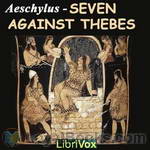 Seven Against Thebes
Seven Against Thebes
In this, the only extant tragedy from Aeschylus' trilogy about the House of Oedipus, Thebes is under siege from Polynices, a former prince of Thebes. After King Oedipus left his city and cursed the princes, Polynices and his brother, Eteocles, decided to rule alternately, switching at the end of every year. However, at the end of his year as king, Eteocles refused to turn power over to his brother and exiled him, fulfilling his father's curse that the two brothers could not rule peacefully. In the action of the play, Polynices and a group of Argive soldiers are attacking Thebes so that he can take his place as ruler... | |
By: Plato (Πλάτων) (c. 428 BC - c. 347 BC) | |
|---|---|
 Gorgias
Gorgias
This dialogue brings Socrates face to face with the famous sophist Gorgias and his followers. It is a work likely completed around the time of "Republic" and illuminates many of the spiritual ideas of Plato. The spirituality, as Jowett points out in his wonderful introduction, has many ideas akin to Christianity, but is more generous as it reserves damnation only for the tyrants of the world. Some of the truths of Socrates, as presented by Plato, shine forth in this wonderful work on sophistry and other forms of persuasion or cookery. | |
By: Unknown (446? BC - 385? BC) | |
|---|---|
 Clouds
Clouds
| |
 Theaetetus
Theaetetus
Theaetetus (Ancient Greek: Θεαίτητος) discusses concepts including perception, true judgment and knowledge. Socrates compares the human mind to a piece of wax and is critical of lawyers who seek only to persuade. | |
By: Euripides (484 BC - 406 BC) | |
|---|---|
 Orestes
Orestes
In accordance with the advice of the god Apollo, Orestes has killed his mother Clytemnestra to avenge the death of his father Agamemnon at her hands. Despite Apollo’s earlier prophecy, Orestes finds himself tormented by Erinyes or Furies to the blood guilt stemming from his matricide. The only person capable of calming Orestes down from his madness is his sister Electra. To complicate matters further, a leading political faction of Argos wants to put Orestes to death for the murder. Orestes’ only hope to save his life lies in his uncle Menelaus, who has returned with Helen after spending ten years in Troy and several more years amassing wealth in Egypt... | |
By: Unknown (427? BC - 347? BC) | |
|---|---|
 Crito
Crito
| |
 Hellenica
Hellenica
| |
 Parmenides
Parmenides
Parmenides (Ancient Greek: ΠΑΡΜΕΝΙΔΗΣ) recounts a meeting between Socrates, Zeno and Parmenides. Topics discussed include universals, plurality and the One. | |
 The Economist
The Economist
| |
 The Athenian Constitution
The Athenian Constitution
| |
By: Confucius 孔子 (551-479 BCE) | |
|---|---|
 Analects of Confucius
Analects of Confucius
The Analects, or Lunyu, also known as the Analects of Confucius, are considered a record of the words and acts of the central Chinese thinker and philosopher Confucius and his disciples, as well as the discussions they held. Written during the Spring and Autumn Period through the Warring States Period (ca. 475 BC - 221 BC), the Analects is the representative work of Confucianism and continues to have a substantial influence on Chinese and East Asian thought and values today. William Jennings was a rector of Grasmere, and late colonial chaplain. He served at St. John's Cathedral in Hong Kong. | |
By: Plato (Πλάτων) (c. 428 BC - c. 347 BC) | |
|---|---|
 Protagoras
Protagoras
Jowett, in his always informative introduction, sees this dialogue as transitional between the early and middle dialogues. Socrates meets with Protagoras and other sophists and pursues his inquiry into virtue. The dialectic brings the thinkers to a surprising ending. Socrates narrates this dialogue. | |
By: Unknown (750? BC - 650? BC) | |
|---|---|
 Odysseus, the Hero of Ithaca Adapted from the Third Book of the Primary Schools of Athens, Greece
Odysseus, the Hero of Ithaca Adapted from the Third Book of the Primary Schools of Athens, Greece
| |
 The Memorabilia
The Memorabilia
| |
 On Horsemanship
On Horsemanship
| |
By: Aristophanes (446-389 BCE) | |
|---|---|
 Frogs
Frogs
Athens is in a sorry state of affairs. The great tragedian, Euripides, is dead, and Dionysus, the god of the theater, has to listen to third-rate poetry. So, he determines to pack his belongings onto his trusty slave, Xanthias, and journey to the underworld to bring back Euripides! Hi-jinks ensue. | |
By: Virgil (70 BC - 19 BC) | |
|---|---|
 Aeneid, prose translation
Aeneid, prose translation
The Aeneid is the most famous Latin epic poem, written by Virgil in the 1st century BC. The story revolves around the legendary hero Aeneas, a Trojan prince who left behind the ruins of his city and led his fellow citizens to Italy, where he became the ancestor of the Romans. The first six of the poem’s twelve books tell the story of Aeneas’ wanderings from Troy to Italy, while the poem’s second half treats the Trojans’ victorious war upon the Latins. This is the recording of J.W.MacKail's prose translation. | |
By: Unknown (427? BC - 347? BC) | |
|---|---|
 Statesman
Statesman
Statesman (Ancient Greek: Πολιτικός) discusses God's role in maintaining the universe and describes the statesman as a good shepherd who promotes intermarriage between the orderly and courageous. | |
 Sophist
Sophist
Sophist (Ancient Greek: Σοφιστής) discusses being and not-being while drawing a distinction between the philosopher and the sophist. | |
By: Plato (Πλάτων) (c. 428 BC - c. 347 BC) | |
|---|---|
 Critias
Critias
This is an incomplete dialogue from the late period of Plato's life. Plato most likely created it after Republic and it contains the famous story of Atlantis, that Plato tells with such skill that many have believed the story to be true. Critias, a friend of Socrates, and uncle of Plato was infamous as one of the bloody thirty tyrants. | |
By: Unknown (427? BC - 347? BC) | |
|---|---|
 Cratylus
Cratylus
Cratylus (ΚΡΑΤΥΛΟΣ) discusses whether things have names by mere convention or have true names which can only be correctly applied to the object named and may have originated from God. | |
 Complete Works of Plutarch — Volume 3: Essays and Miscellanies
Complete Works of Plutarch — Volume 3: Essays and Miscellanies
| |
 Charmides
Charmides
Charmides (Χαρμίδης) discusses the virtue of temperance. | |
By: Aristophanes (446-389 BCE) | |
|---|---|
 Clouds
Clouds
Strepsiades is an Athenian burdened with debt from a bad marriage and a spendthrift son. He resolves to go to the Thinking Shop, where he can purchase lessons from the famous Socrates in ways to manipulate language in order to outwit his creditors in court. Socrates, represented as a cunning, manipulative, irreverent sophist, has little success with the dull-witted Strepsiades, but is able to teach the old man's son Phidippides a few tricks. In the end, the play is a cynical, clever commentary on Old Ways vs. New Ways, to the disparagement of the former. | |
By: Unknown (43 BC - 18?) | |
|---|---|
 The Metamorphoses of Publius Ovidus Naso in English blank verse Vols. I & II
The Metamorphoses of Publius Ovidus Naso in English blank verse Vols. I & II
| |
 Agesilaus
Agesilaus
| |
 The Apology
The Apology
| |
 Laches
Laches
Laches (Λάχης) discusses examples of courage including weapons masters, soldiers who stand firm in battle, ferocious animals and the wise person who endures evils. | |
By: Plato (Πλάτων) (c. 428 BC - c. 347 BC) | |
|---|---|
 Alcibiades I
Alcibiades I
As Jowett relates in his brilliant introduction, 95% of Plato's writing is certain and his reputation rests soundly on this foundation. The Alcibiades 1 appears to be a short work by Plato with only two characters: Socrates and Alcibiades. This dialogue has little dramatic verisimilitude but centres on the question of what knowledge one needs for political life. Like the early dialogues, the question is on whether the virtues needed by a statesman can be taught, on the importance of self-knowledge as a starting point for any leader... | |
By: Unknown (427? BC - 347? BC) | |
|---|---|
 Philebus
Philebus
Philebus (ΦΙΛΗΒΟΣ) discusses pleasure, wisdom, soul and God. | |
 Lysis
Lysis
Lysis (Λύσις) discusses friendship and love between the good and bad. | |
 Menexenus
Menexenus
Menexenus (ΜΕΝΕΞΕΝΟΣ) is thought to have been written by Plato (ΠΛΑΤΩΝ). The dialogue consists of Socrates (ΣΩΚΡΑΤΗΣ) recounting a funeral oration he claims to have learned from the female philosopher Aspasia (ΑΣΠΑΣΙΑ) who may have been wealthy, a courtesan or both. | |
 Euthydemus
Euthydemus
Euthydemus (Εὐθύδημος) and Dionysodorus the sophists discuss the meaning of words with Socrates. | |
 Hiero
Hiero
| |
 The Cavalry General
The Cavalry General
| |
By: Euripides (484 BC - 406 BC) | |
|---|---|
 Alcestis
Alcestis
Alcestis is the earliest surviving play by Euripides. Alcestis, the devoted wife of King Admetus, has agreed to die in his place, and at the beginning of the play she is close to death. In the first scene, Apollo argues with Thanatos (Death), asking to prolong Alcestis' life, but Thanatos refuses. Apollo leaves, but suggests that a man will come to Pherae who will save Alcestis. Euripides' play is perhaps the most unusual Greek drama ever written: a tragedy that is not a tragedy. | |
By: Unknown (431 BC - 350? BC) | |
|---|---|
 On Revenues
On Revenues
| |
 The Sportsman
The Sportsman
| |
By: Plato (Πλάτων) (c. 428 BC - c. 347 BC) | |
|---|---|
 Lesser Hippias
Lesser Hippias
This work may not be by Plato, or his entirely, but Jowett has offered his sublime translation, and seems to lean towards including it in the canon. Socrates tempted by irony to deflate the pretentious know-it-all Hippias, an arrogant polymath, appears to follow humour more than honour in this short dialogue. | |
By: Unknown (427? BC - 347? BC) | |
|---|---|
 Eryxias
Eryxias
Eryxias (ΕΡΥΞΙΑΣ) may not have been written by Plato (ΠΛΑΤΩΝ). The dialogue discusses whether wealth has value and what the aim of philosophy should be. | |
 Alcibiades II
Alcibiades II
| |
By: Marcus Tullius Cicero (106-43 BCE) | |
|---|---|
 Speeches Against Catilina
Speeches Against Catilina
This volume contains the four speeches delivered by Cicero in 63 BC, when he was a consul, against the conspiracy headed by L. Sergius Catilina. Catilina was scheming to bring about a general uprising in the country if he could not rise to a position of power by election. This volume includes an English introduction and notes on the speeches by E.A. Upcott.The e-text used to produce this audiobook also includes further helpful study material for Latin scholars, which has been omitted from this audio version. - Summary by Carolin | |
By: Plotinus (204-270) | |
|---|---|
 Enneads
Enneads
The six Enneads are the collected writings of the Neoplatonic philosopher Plotinus arranged by his student Porphyry into fifty-four books with each Ennead containing nine. The translator Kenneth Sylvan Guthrie arranged these books chronologically rather than according to Porphyry's numeration. This recording is organized according to Porphyry's numeration with Roman numerals indicating the Ennead and Hindu-Arabic numerals indicating the book e.g. VI.9 would be the ninth book of the sixth Ennead. A hyperlinked table of contents at Volume 1 Page 3 of the gutenberg.org text will enable you to jump to the specific Ennead if you wish to read along with the recording. | |
By: Marcus Aurelius (121-180) | |
|---|---|
 Meditations of the Emperor Marcus Aurelius Antoninus
Meditations of the Emperor Marcus Aurelius Antoninus
The Meditations is divided into 12 books that chronicle different periods of Marcus' life. Each book is not in chronological order and it was written for no one but himself. The style of writing that permeates the text is one that is simplified, straightforward, and perhaps reflecting Marcus' Stoic perspective on the text. Depending on the English translation, Marcus' style is not viewed as anything regal or belonging to royalty, but rather a man among other men which allows the reader to relate to his wisdom... | |
By: Pliny the Elder (23-79) | |
|---|---|
 Boys' and Girls' Pliny Vol. 1
Boys' and Girls' Pliny Vol. 1
The Natural History of Pliny the Elder is one of the largest single works to have survived from the Roman Empire. The full work consists of 37 books, covering more than 20.000 topics ranging from astronomy and mathematics to botany and precious stones. The book became a model for later encyclopaedias and gives a fascinating overview of the state of scientific knowledge almost 2000 years ago. This version of the Natural History has been adapted for a younger audience. This first volume contains Book I and Book II out of a total of 9 books. | |
By: Austen Layard (1817-1894) | |
|---|---|
 Discoveries Among the Ruins of Nineveh and Babylon
Discoveries Among the Ruins of Nineveh and Babylon
Austen Henry Layard is best known as the excavator of Nimrud and of Nineveh, where he uncovered a large proportion of the Assyrian palace reliefs known, and in 1851 the library of Ashurbanipal. The Royal Library of Ashurbanipal, named after Ashurbanipal, the last great king of the Assyrian Empire, is a collection of thousands of clay tablets and fragments containing texts of all kinds from the 7th century BC. Among its holdings was the famous Epic of Gilgamesh.In this work, he describes his experiences upon his return to the region for a second expedition. - Summary by Soupy Proof-listened by Elijah Fisher and TriciaG. | |
By: Various | |
|---|---|
 Junior Classics Volume 3: Tales from Greece and Rome
Junior Classics Volume 3: Tales from Greece and Rome
The purpose of The Junior Classics is to provide, in ten volumes containing about five thousand pages, a classified collection of tales, stories, and poems, both ancient and modern, suitable for boys and girls of from six to sixteen years of age. This collection consists of Volume 3, including many tales from Homer and Virgil among others. - Summary by William Patten | |
By: Joseph Martin McCabe (1867-1955) | |
|---|---|
 Empresses of Rome
Empresses of Rome
The story of Imperial Rome has been told frequently and impressively in our literature, and few chapters in the long chronicle of man’s deeds and failures have a more dramatic quality. The fresh aspect of this familiar story which I propose to consider is the study of the women who moulded or marred the succeeding Emperors. Woman had her part in the making, as well as the unmaking, of Rome. Long before the commencement of our era, the thought and the power of the Roman woman went out into the larger... | |
By: George Frederick Maclear (1833-1902) | |
|---|---|
 Class-Book of Old Testament History
Class-Book of Old Testament History
This is classic book by scholar, educator, theologian and preacher George Frederick Maclear, headmaster of King's College School, London, and later warden of St. Augustine's Missionary College, Canterbury. Each short chapter is a nugget of events and persons of the Old Testament, giving a very accessible overview of history from the Earliest Times to those of Ezra and Nehemiah. | |
By: William Stukeley (1687-1765) | |
|---|---|
 Stonehenge, a Temple Restor'd to the British Druids
Stonehenge, a Temple Restor'd to the British Druids
Stonehenge in Wiltshire, England never fails to amaze and fascinate; and has been the subject of speculation, research and investigation for centuries. This is an early look at this enigmatic location. As the author says in the preface: "A few years ago I spent some time every summer in viewing, measuring, and considering the works of the ancient Druids in our Island; I mean those remarkable circles of Stones which we find all over the kingdom, many of which I have seen, but of many more I have had accounts... | |
By: Charlotte Maria Tucker (A. L. O. E.) (1821-1893) | |
|---|---|
 Stories of the Wars of the Jews
Stories of the Wars of the Jews
Stories of the Wars of the Jews from the Babylonish captivity, to the destruction of Jerusalem by Titus is a historical narrative spanning Jewish history from 586 B.C.E to 70 A.D. There is no history more fraught with interest, or conveying more important lessons than that of God’s chosen nation. There are no annals which display instances of more heroic courage, faith, and self-devotion and of darker apostasy and crime,—than those of the descendants of Abraham. | |
By: Frederick Adam Wright (1869-1946) | |
|---|---|
 Greek Athletics
Greek Athletics
The history of Greek athletics as it pertains to the Olympics. Describes various activities such as boxing, wrestling, etc. and accounts from witnesses, the Iliad, etc. as they pertain to famous Greeks and events. He discusses Greek views of physical appearance and fitness as they pertain to the games and society and also how and why individual city-states chose to participate in the Olympics. | |
By: Leigh North | |
|---|---|
 Predecessors of Cleopatra
Predecessors of Cleopatra
This book provides such information as was known at the onset of the 20th Century about Egyptian queens in antiquity. Much has been learned in the ensuing 100+ years so this book needs to be considered in the context of the time in which it was written. Queens are covered from Princess Nefert of the 3rd Dynasty through the famous Cleopatra. Leigh North is the pseudonym of Mrs. Elizabeth Stewart Phelps. | |
By: Harry Rimmer (1890-1952) | |
|---|---|
 Dead Men Tell Tales
Dead Men Tell Tales
"Dead men tell no tales" was a common adage before the days of forensic science. In this book, the well-known evangelist and scientist uses Egyptology and archaeology to counter the argument in the investigation of Bible lore.. - Summary by Lynne Thompson | |
By: James Frazer (1854-1941) | |
|---|---|
 Golden Bough. A Study in Magic and Religion. Part 4. Adonis Attis Osiris. Volume 1
Golden Bough. A Study in Magic and Religion. Part 4. Adonis Attis Osiris. Volume 1
The fifth volume and the first of two in the fourth part of Frazer's seminal work on the evolution of belief deals with the semi mythological legends of the Mediterranean and the eastern civilizations. Many analogies are traced between the worship of Osiris and the worship of the dead, especially of dead kings. The conclusion to which these analogies appear to the point is that under the mythical pall of the glorified Osiris, the god who died and rose again from the dead, there once lay the body of a dead man... | |
By: Dorothy Mills | |
|---|---|
 Book of the Ancient Greeks
Book of the Ancient Greeks
An Introduction to the History and Civilization of Greece from the Coming of the Greeks to the Conquest of Corinth by Rome in 146 B.C. The spirit of a nation is expressed and its history is recorded in three ways: in its political history, in its literature and in its art. The aim of this book has been to use such parts of the political history of the Greeks, of their literature and of their art as seem to have been the outward and visible signs of the spirit that inspired them. - Summary from... | |